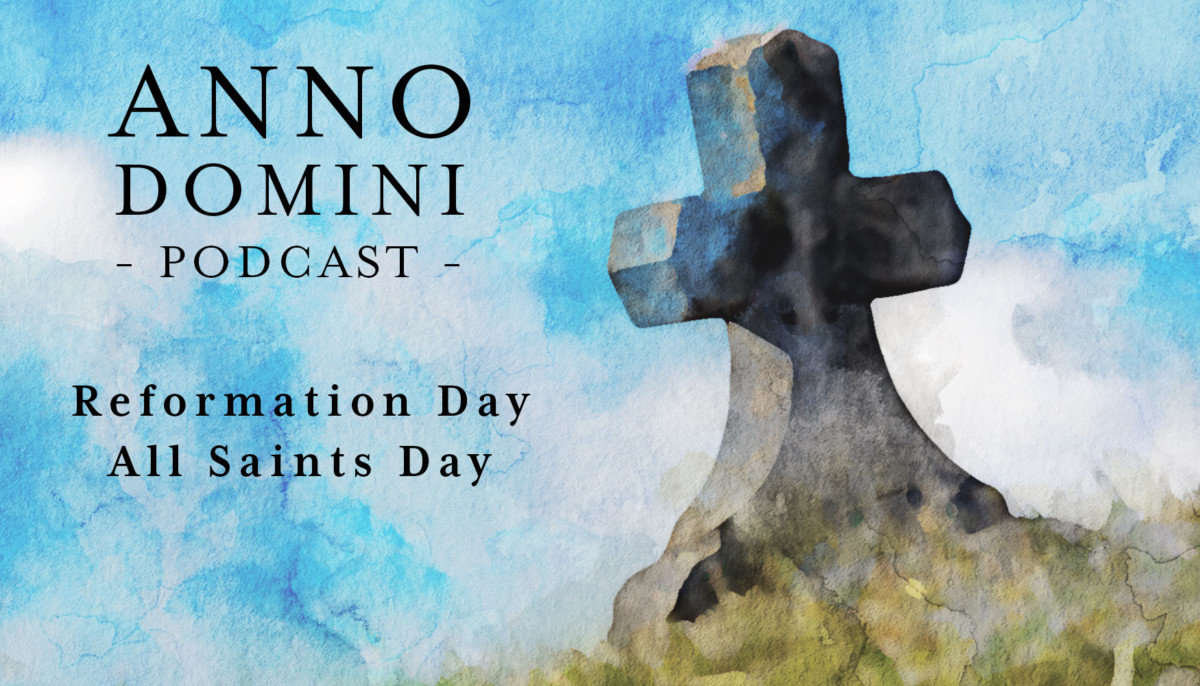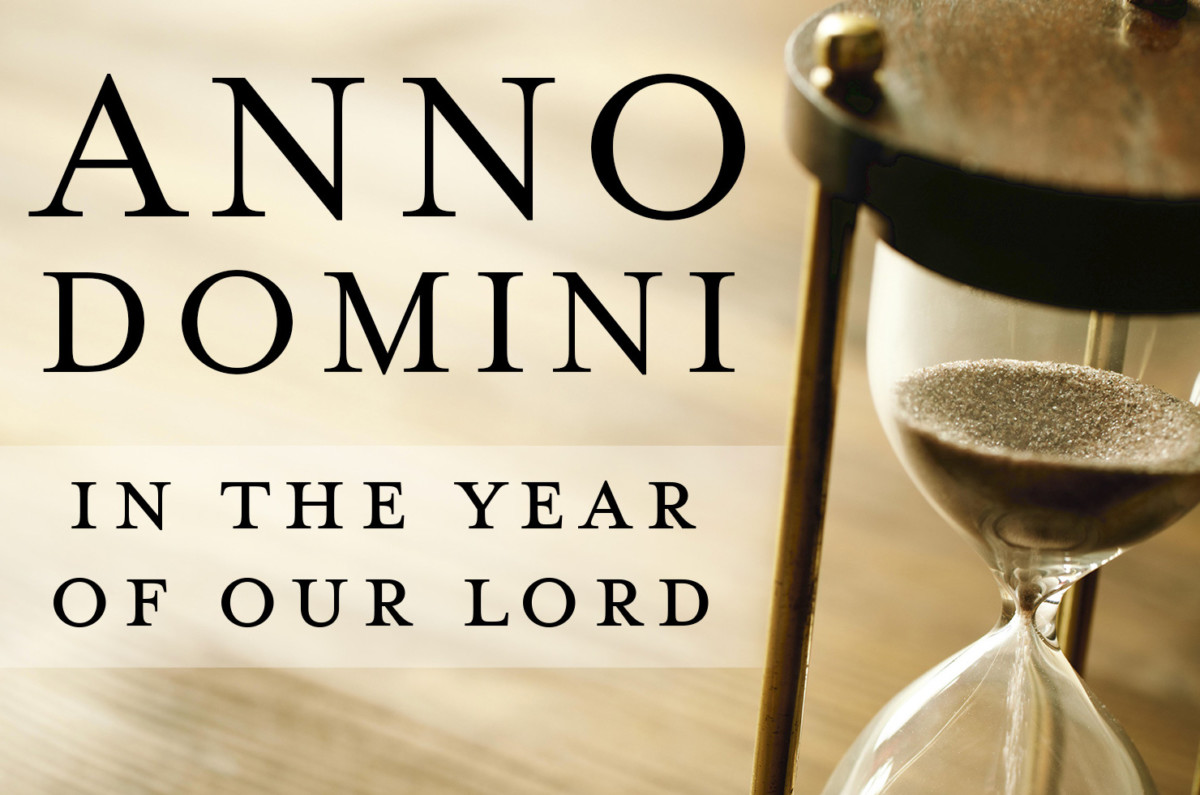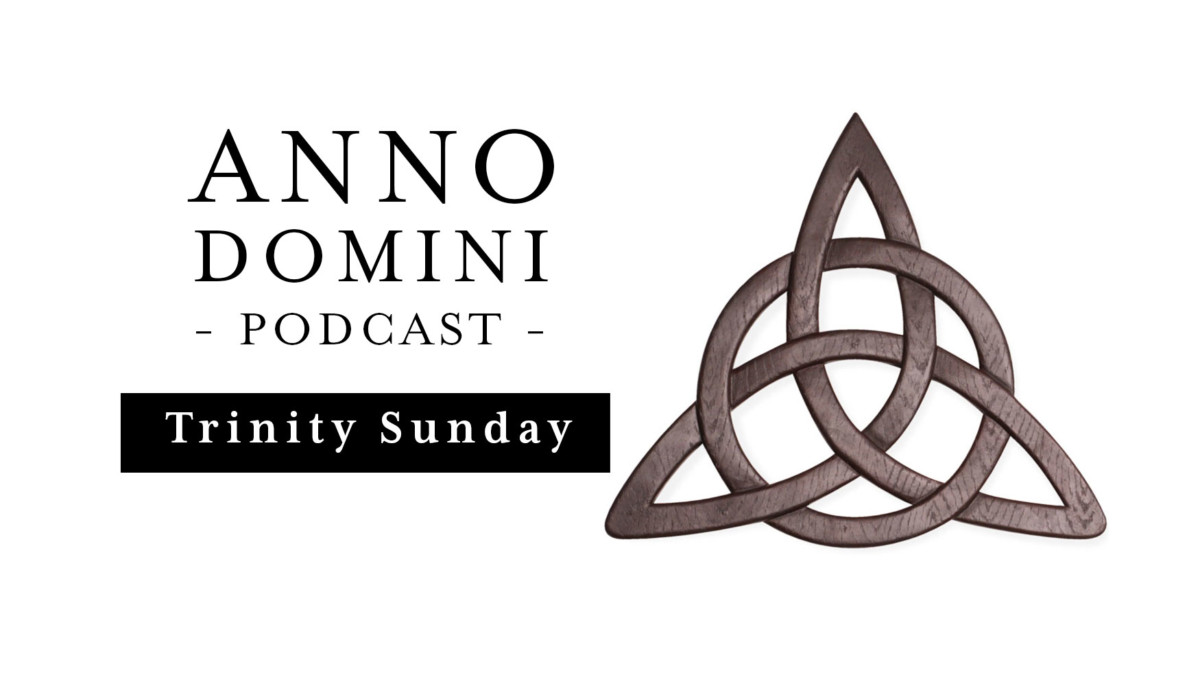"Westerners now generally start our Christmas preparations unfortunately on Black Friday, the day after Thanksgiving, and work at a frenzied pace to get everything ready for 1 day only. We then give all or most of our gifts on December 25th and many even have the tree and decoration taken down by the next day. It hasn’t always been like this though."
Song: Setting of Psalm 67
Passage: Isaiah 60:1-9
Dutch Children Act out the Epiphany
Hello everyone and Welcome to episode #7 of the Anno Domini Podcast. A podcast dedicated to the supremacy of Christ over all things including our days, weeks, and months.
Join me as we explore how Christ is revealed through the cyclical life of the church calendar year. We’ll discover how this calendar once structured culture and how it can again. We’ll also discuss practical ways to observe and celebrate these holy days in our quest to glorify God and live the good life in the midst of all good He has given us.
We have made it through the season of Advent and now we approach our next holiday on the Church calendar; Epiphany. Epiphany is the culmination of the Christmas season and comes after the 12 days of Christmas is over. It is a time when we celebrate the coming of the Messiah unto the Gentiles and up until the 19th century, it was on par with Christmas Day itself earning itself the title of “little Christmas.” As I’ve said before, Epiphany, like any of the feast and festivals found on the Church Calendar are not a requirement for Christians to observe but a blessings for those who enjoy the liberty found in the gospel. Christ came that we might have life and have it abundantly. If celebrating a holiday that is found only in tradition and not in the revealed Word of God bothers your conscience, then by all means sit this celebration out. Just remember this: Remember the Sabbath day and keep it holy. The Lord’s day is not a day that we have the option to take or leave. It is the day God has set aside for us to rest and worship Him. To celebrate the victory of the Christ over Sin, Satan, and Death itself.
Practical and Historical
Have you ever heard of the 12 days of Christmas? You’ve know the song but contrary to popular belief now, the first day of Christmas is actually Christmas Day or December 25th and each following day until the evening of the January 5th or 12th day which is also called Twelfth Night those are the 12 days of Christmas. Westerners now generally start our Christmas preparations unfortunately on Black Friday, the day after Thanksgiving, and work at a frenzied pace to get everything ready for 1 day only. We then give all or most of our gifts on December 25th and many even have the tree and decoration taken down by the next day. It hasn’t always been like this though. Before the 19th century, when the industrial revolution put an end to extended celebrations, Epiphany was more important than Christmas Day itself. We would spread our gift giving and merry making out over 12 days, each day celebrating a different aspect of Christianity and our history. One day we would celebrate the first martyr of the Church, Stephan, another day we mark and mourn the slaughter of the innocents by the hand of the Romans and Herod in Bethlehem. This would all be building up to the very biggest part of the celebration which happens on the evening of January 5th or Twelfth night which was the eve of the Feast of the Epiphany. These were times meant for singing and caroling from door to door. A time of feasting and eating lots of great food with friends and family. It was also a time for making and eating something called Kings Cake which has many many variations with the version I’m most familiar with being called Panettone. Usually a dried bean would be placed on one side of the cake and a dried pea placed somewhere on the other side. The men and boys eat the side containing the bean and the women and girls eat the side containing the dried pea. Whoever finds the bean is King for that day and whoever finds the dried pea is Queen for the day. Historically, kids dress up on Epiphany as the three wise men and do nativity skits, sing songs, and go door to door caroling and receiving candy, coins, and many many smiles. I have a video I will link to in the show notes that is a good representation of what epiphany celebrations looked like 60 years ago in heavily Protestant Holland.
The word Epiphany means manifestation which is itself a difficult word. Noah Webster defines manifestation this way:
MANIFESTA'TION, The act of disclosing what is secret, unseen or obscure; discovery to the eye or to the understanding; the exhibition of any thing by clear evidence; display; as the manifestation of God's power in creation, or of his benevolence in redemption.
Epiphany marks the beginning of the season of manifestation. Over the next several weeks we will see Christ being revealed in various ways. He is revealed on Epiphany to the Magi. On the Sunday of January 12th we will celebrate Him being revealed to the world through His public baptism. On the Sunday of February 2nd we will celebrate His revealing at the temple to Simeon. Simeon realized, or it was manifested to him that he was in the presence of the Savior of the world, a light to the Gentiles and a glory for Israel. On the Sunday of February 23rd we celebrate Christ revealing Himself to the inner 3 disciples through His transfiguration. He revealed to them in His transfiguration, all His glory. This revealing culminates as Christ goes into the desert and reveals Himself to Satan and does battle with Satan for 40 days. This is marked on Feb. 26th by Ash Wednesday and is the beginning of the Season of Lent. Up until Lent we will mark each Sunday as the Sunday After Epiphany. So while January 5th is the 2nd Sunday after Christmas, January 12th is the first Sunday after Epiphany. Likewise the Lord’s Day on March 1st is known as the 1st Sunday after Lent. In this way we are always finding ourselves in a particular season. Right now we are on the cusp the the season of Epiphany which itself is celebrating the coming light of Christ unto the Gentiles by the coming of the Magi or Wise Men unto Jesus. These wise men, sometimes called 3 Kings although we have no way of knowing if they were kings or not, are representative, in a way, of the Gentile world. They were not Jews but the Glory of the Lord was revealed to them. They were not Jews but they saw the light of God and followed the star, the glory of the Lord, and found the Christ and salvation as a result. They were not Jews but they did not come empty handed but brought gifts fit for a King. This theme of Light in darkness has been prevalent throughout the Advent season and in some ways it reaches it zenith during Epiphany. Christ came first for the Jews and when they as a whole, rejected Him, refused to seek Him, and would bring Him no gifts, the Gentiles, as our text will reveal, flying like clouds, came from all 4 corners of the earth unto the savior because they, The Gentiles, had been sitting in great darkness and upon them a light has dawned. Traditionally, Epiphany is the time that Christians take their Christmas decoration down. After celebrating Christmas for 12 days in one fashion or another, it is time for us to close out the season of Advent and Christmastime and move into the time of Epiphany when Christ, as we have discussed, reveals Himself in various ways to the world. Our family, for severals years now, has marked Epiphany by taking our Christmas tree outside in the darkness of the night and setting it on fire. Then we all shout at the top of our lungs “Jesus is the Light of the World.” It is a glorious end to a glorious season.
Biblical
Our last segment combined both the historical with the practical. In this section we will look at the passages found in our lectionary surrounding Ephiphany and one of the passages in particular that of Isaiah 60 verses 1 through 9. The actual text only goes through verse 6 but I wanted to included the follow 3 verses for the discussion. Let’s read the text.
Arise, shine, for your light has come,
and the glory of the Lord has risen upon you.
For behold, darkness shall cover the earth,
and thick darkness the peoples;
but the Lord will arise upon you,
and his glory will be seen upon you.
And nations shall come to your light,
and kings to the brightness of your rising.
Lift up your eyes all around, and see;
they all gather together, they come to you;
your sons shall come from afar,
and your daughters shall be carried on the hip.
Then you shall see and be radiant;
your heart shall thrill and exult,
because the abundance of the sea shall be turned to you,
the wealth of the nations shall come to you.
A multitude of camels shall cover you,
the young camels of Midian and Ephah;
all those from Sheba shall come.
They shall bring gold and frankincense,
and shall bring good news, the praises of the Lord.
All the flocks of Kedar shall be gathered to you;
the rams of Nebaioth shall minister to you;
they shall come up with acceptance on my altar,
and I will beautify my beautiful house.
Who are these that fly like a cloud,
and like doves to their windows?
For the coastlands shall hope for me,
the ships of Tarshish first,
to bring your children from afar,
their silver and gold with them,
for the name of the Lord your God,
and for the Holy One of Israel,
because he has made you beautiful.
The themes of light within the lectionary during this portion of the year are everywhere. In this passage God’s people are told to shine because their light has come. This means that as God’s people, we are a sort of moon to the Sun of Righteousness. We reflect His glory and even though the world is covered in darkness His glory will be seen on us and the nations will come to our light. This of course is what Epiphany is celebrating. The coming of the nations unto the Sun of Righteousness following the one true Star, Christ is of course the Bright Morning Star and those who follow Him receive His light and can then reflect that light to an unbelieving world. In fact Isaiah promises the believers of the day that in that day, in the coming of Christ, the nations shall come to the light of the people of Israel and Kings to the brightness of their rising. The epistle reading for Epiphany is found in Ephesians chapter 3 verse 1 through 12 where Paul explains that Gentiles “
are now fellow heirs, of the same body, and partakers of His promise in Christ through the gospel. “This means that there is no longer Jews and Gentiles. Not at least in the sense of Jewish people specifically being the chosen of God any longer. That status no longer has the genetic requirements or stipulations that it once had. Before, you were a Jew if you were born a Jew. Now, since the coming of Christ, being one of God’s chosen people means you recognize Jesus as the King, the Son of God, and that He died for you and rose again to save you from your own wickedness. The Jews 2000 years ago rejected this idea and still reject it today. This means that the Church, baptized believers, are the true recipients of these promises found in Isaiah. When it says the your sons shall come from afar, those are our sons. When God says He will beautify His beautiful House, we are the living stones that make up that House. We are those that fly like clouds and like dove’s to Christ. We are those who hope for Him and whom He has made beautiful. And this is true of everyone who believes. Jew or Gentile. Male or Female. Slave or Free. All can come to Christ in faith and He promises never to turn any who come to Him away.
Musical
Today we will be examining not a hymn but a setting of Psalm 67. While there are many incredible Epiphany hymns, the one I was preparing was not finished in time, so instead we will look at Psalm 67. Now I won’t spend a lot of time discussing the Psalm except to say that it fits nicely within the theme of Epiphany because it asks God to make His face to shine upon u that His ways may be known in all the earth His salvation known among all nations. It also speaks to the fact that the earth will be governed by God and will as a result yield her increase. This psalm is sung sung verbatim from the New King James Version. I will probably go to my grave remember this entire Psalm word for word because it has been set to music. As psalm literal means song, really all 150 psalms ought to be sung. However as the Church has recently moved from maturity to immaturity, the first thing to go the singing of psalms replacing them with hymns only. Then hymns were replaced by contemporary worship music and praise choruses. Finally many churches find themselves singing songs that were meant for kids and often have more in common with romantic love songs than the worship of the triune God. This is what is meant when some critique worship songs as being “Jesus is my boyfriend” songs. They follow the pattern of pop music instead of Scripture. This cause many of us to stay in what has been called, perpetual spiritual kindergarten. Instead of growing in grace and truth and sinking our teeth in to the meat of the word, growing in the fruit of the Spirit, and seeing those around us grow in grace too, we perpetually stay on milk, confusing childish faith with child-like faith and in so doing loose much of the blessings we could receive from the psalter or the book of Psalms.
I hope you all have a wonderful Twelfth Night and Feast of the Epiphany. The next major celebration in the church calendar is Ash Wednesday which marks the beginning of Lent. This is not until Feb. 26th. I may do another podcast during Epiphany and I may wait until the start of Lent for the next one I haven’t decided yet but stay tuned and enjoy this time of the light coming unto us Gentiles, the new Israel.


